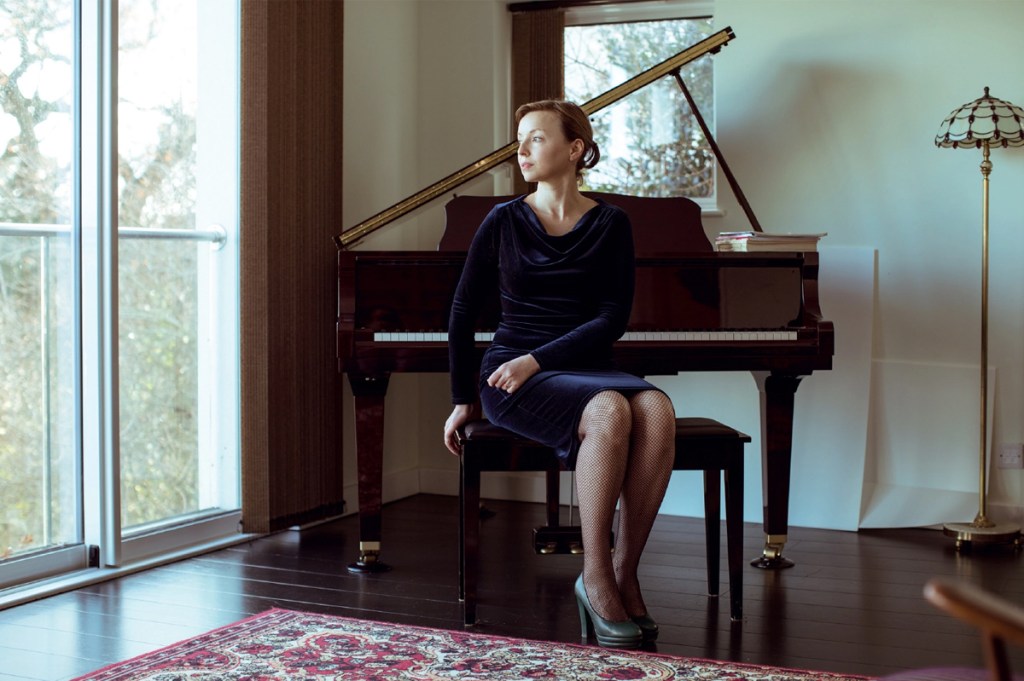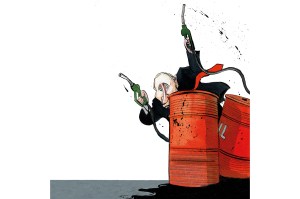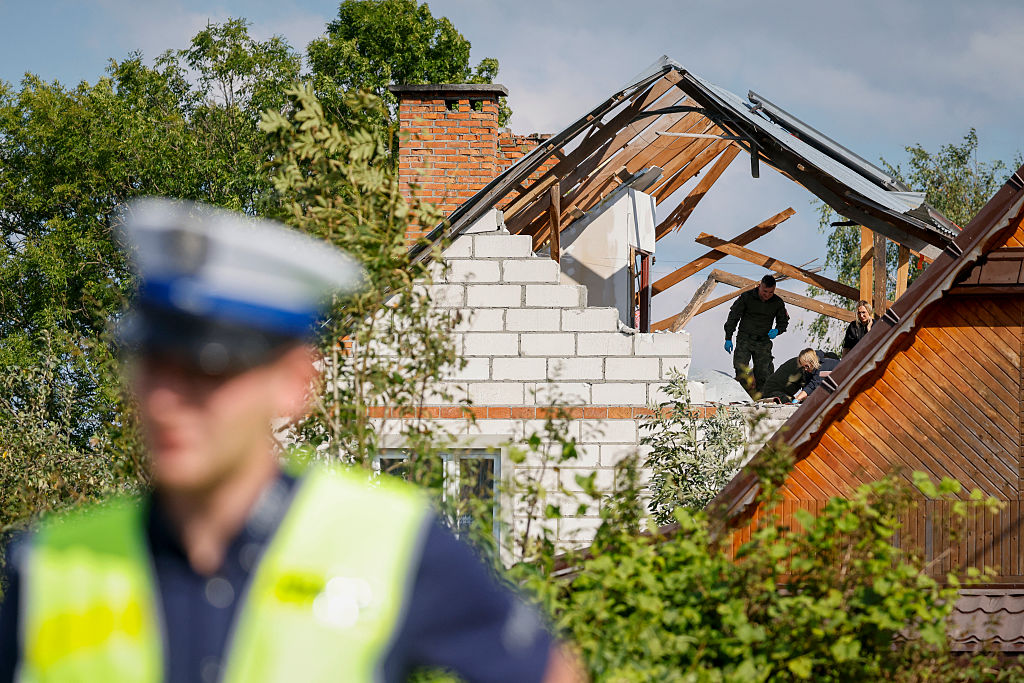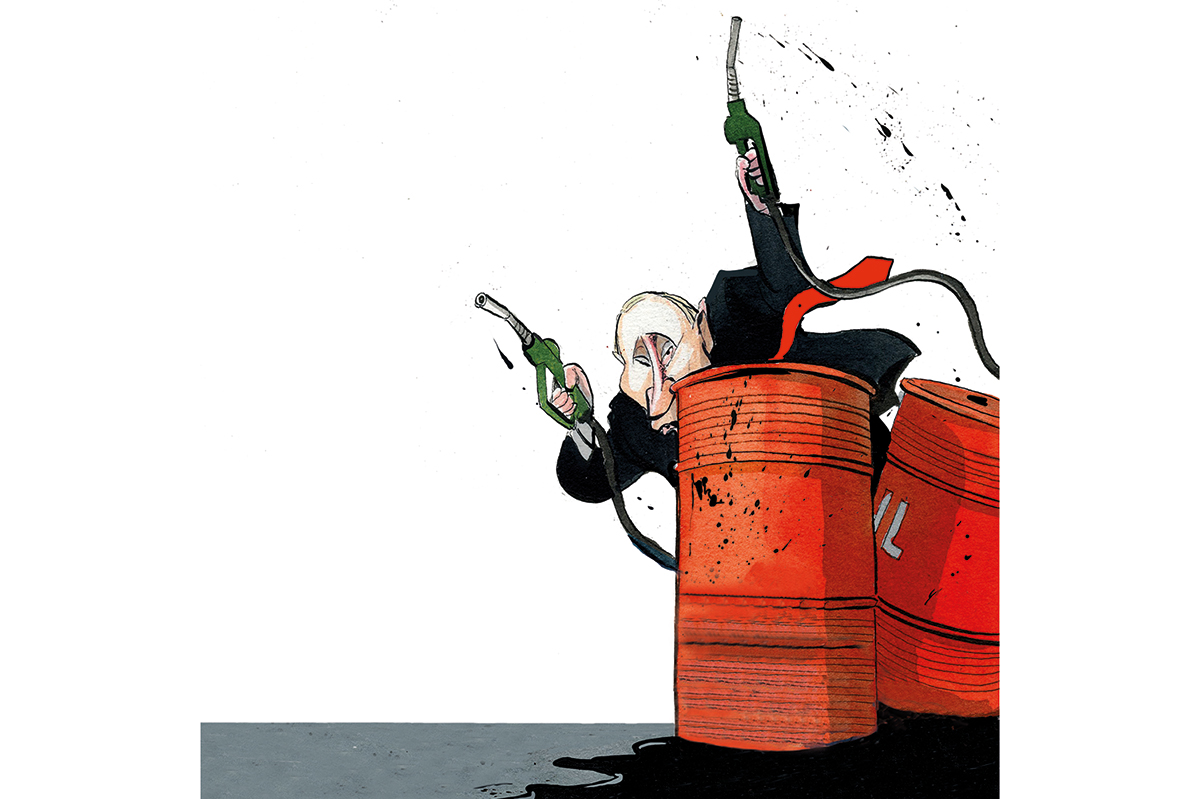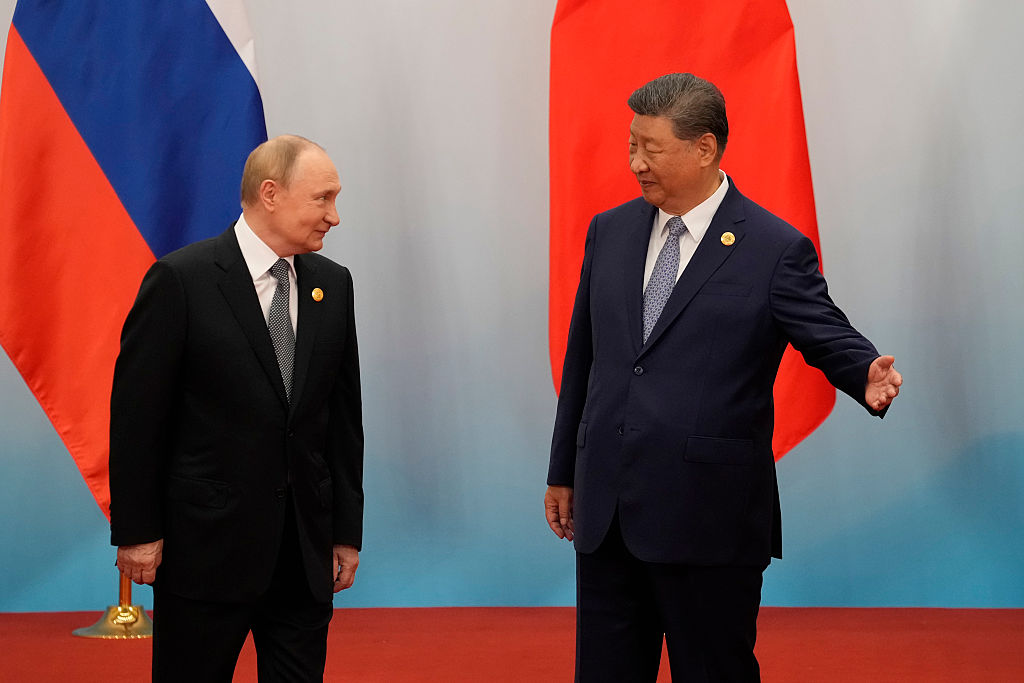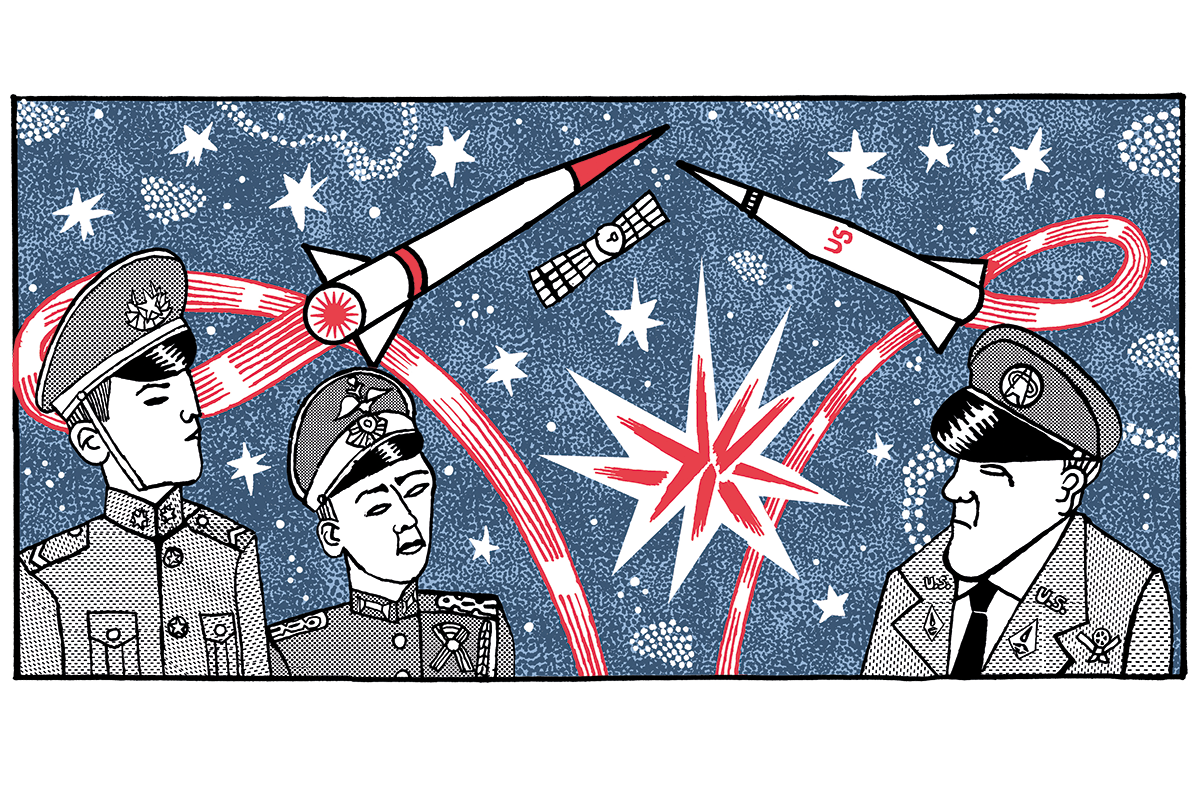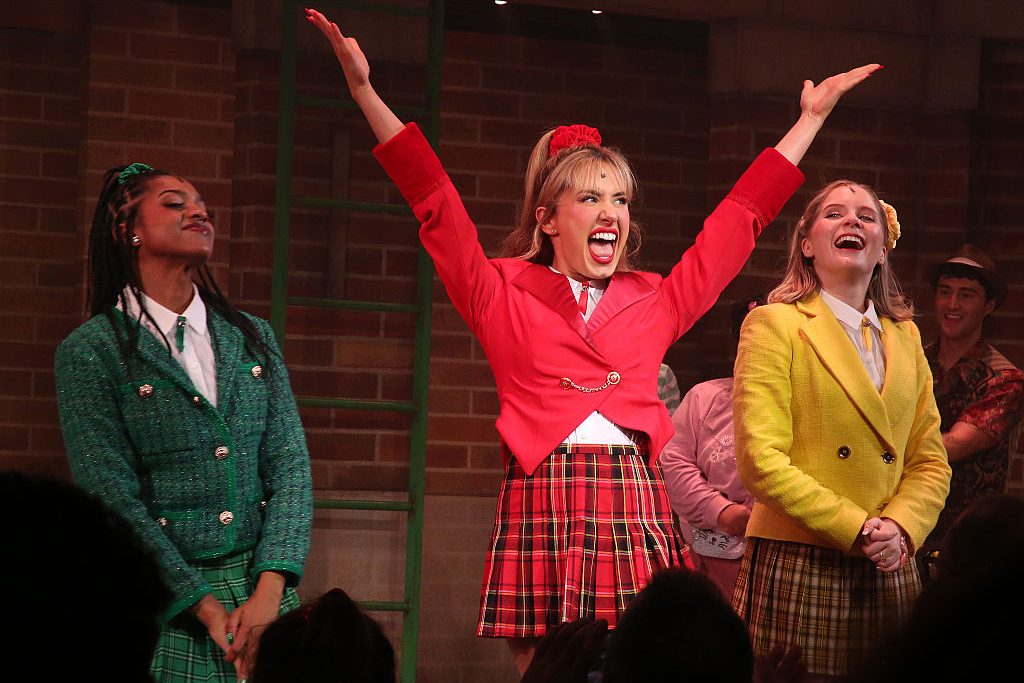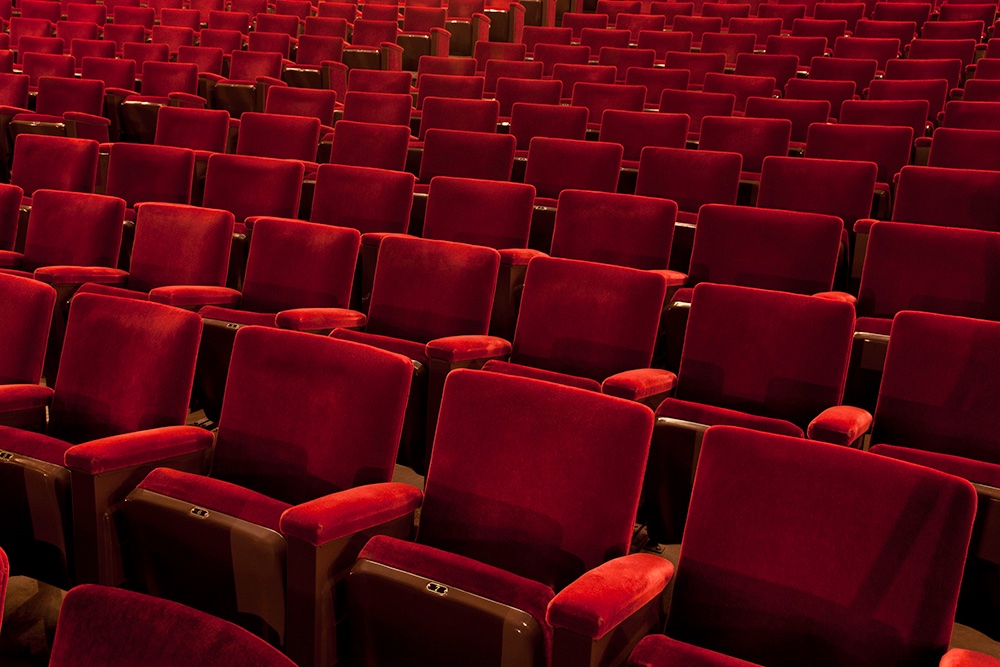Swift and sure, the guillotine blade came down on Russians in the West on February 24 last year, the day Russia invaded Ukraine. The logic was clear as concerned Putin loyalists; cutting them off from Western gravy trains in the face of their dear leader’s grotesque aggression made some sense. They could bed down with the devil, so to speak, but not on our buck. So one doesn’t weep much over the relegation to Europe’s fringes of the likes of openly pro-Putin musicians such as pianist Denis Matsuev or the former LSO and Munich Philharmonic chief conductor Valery Gergiev.
Then there’s the soprano Anna Netrebko, who, seen as being close to Putin, was sacked immediately by the Met when she didn’t condemn the Russian President fast enough. She later condemned the war in no uncertain terms, but she’s still untouchable in Britain, according to Antonio Pappano, the music director of Covent Garden. In April, Pappano criticized the epidemic of “inept canceling” of Russian musicians triggered by the invasion, and defended his collaboration with Netrebko in Salzburg next year. But “the conditions are not right for her to be performing [in London]”.
Netrebko, who is widely liked, is unlikely to be permanently exiled, even though the Met suggested she might be. But the near-deletion from the classical music and dance world of Russians who don’t share Gergiev’s or Matsuev’s allegiance — or their richly roubled pockets — has obliterated, for the time being, the prospects of many young Russians, and reconfigured the artistic landscape and atmosphere of the industry, making it more Manichaean, more politicized.
To be clear: my violins will stay safely stowed for apologists of Putin, or those who profit from his regime. But the idea that it is sacrilege to enquire into any Russian experience at all, even of artists who loathe Putin (as many do), is false, especially given how huge the Russian contribution to the arts in the West is. What has happened to them? What has the past year actually been like?
My curiosity was sparked in March, when I went to see The Dong With the Luminous Nose at the Royal Festival Hall, a new piece based on the Edward Lear poem composed by Muscovite Elena Langer. Langer has lived in Britain for more than twenty years, and is known for melodic, quirky and often comic compositions.
Surprisingly, the program also included a new piece by the Ukrainian composer Victoria Vita Poleva who was allegedly furious at Langer’s presence alongside her. Poleva was sitting in the audience right behind me, and when I turned to congratulate her after the applause had died down, she nodded somewhat dourly before racing off in the interval before Langer’s Dong. It was a fairly benign hint of a much sharper trend that has come to define Russian musicians’ experience: Ukrainian artists demanding total excision from programs not only of them, but of long-dead Russian composers too.
Still, clapping away with glee after a choir sang of “jumbly girls… going to sea in a sieve”, the crowd didn’t seem bothered by Langer’s birthplace — if they knew it, that is (it probably helps that her last name is German).
Afterwards, Langer told me that she loves Edward Lear because of her “love for Gogol’s style, and Bulgakov” and the poetry of Daniil Kharms, “who in turn was very much influenced by the English absurdist poems, and he behaved like an Englishman eccentrically dressed in ridiculous clothes in 1930s Leningrad.” It’s hardly Putinist triumphalism.
Still, The Dong’s success aside, the last year has been tricky for Langer: a major commission from the Stanislavsky theatre in Moscow, for a version of Nikolai Erdman’s The Suicide, was informally dissolved after lines went dead. Excuses were made, fees went unpaid. In this case, Langer had become the Western enemy.
“It is a perfect subject for an opera because it contains so many ridiculous characters,” she says in her melodic English. “It was mocking every character in society. And it was full of ridiculous, over-the-top operatic characters who somehow, like Gogol and Bulgakov, they represent life.”
But the theater is “delaying, delaying or canceling. They’re incredibly evasive about it. I only hear rumors and, like in my opera itself, I only hear lies. The situation is Kafkaesque. Because in Russia, it’s either cancelled, delayed, postponed, erased. And here in the West it’s presented as something in Russia, so they don’t want it.”
Langer asked an agent to represent The Suicide at the Opera Europa conference in Budapest. “She called me after the conference and said, ‘I’m so sorry, I cannot do your piece here because there are three representatives from Ukraine: from Kiev, Odessa and Lviv. And they will object to us even thinking about anything Russian which is new or newly commissioned.’ And so I understood that it cannot be realized.”
I also spoke to Odessa-born, Munich-based Natalia Neumann, who until last year ran a successful boutique agency that worked with “great superstars” of opera — mainly Russian singers but also Ukrainian. When the war started, 70 percent of her contracts were canceled, both in Russia and in Europe and America. By July last year, “I just couldn’t handle it anymore, I couldn’t do it any more, just couldn’t do it any more,” she says. She is now an executive assistant at a medical technology firm and sees no future in music.
However rotten the war for Ukraine, the tales she tells of the treatment of her artists are shiver-inducing. One of her Ukrainian artists was meant to appear in Mussorgsky’s Boris Godunov at La Scala. But because it was a Russian opera he “had to withdraw because the Ukrainians were against it.” He was then taken on at the Bavarian Staatsoper to perform in another Russian work, Shostakovich’s The Nose, but a number of Ukrainians found out, having seen his name online, and sent a letter — in Neumann’s possession — that states if he went ahead “he will be stopped at the border if he tries to leave Ukraine [in future],” she says.
I express surprise that people in Ukrainian opera have immediate control over borders. “They speak to the ministry,” she explains. “Everything in Ukraine is combined. If you say something wrong, if you say that you like Russian books, Russian music, you are the enemy of the state.”
There’s a less PC consequence to the mass punishment of Russians: “Many Ukrainian artists who are mediocre are being pushed up,” says Neumann.
But “the worst part was when my Russian artists had to explain 100 times that they are not Putin supporters and that they couldn’t say it out in the open. Most of my artists did declare that they are against the war. This led to some consequences that they did not like.” Like what? Loss of the government-owned apartments Russia still gives to distinguished artists, loss of pensions, being blacklisted, she says. “It is easy to say [Russian artists should condemn Putin], but not easy to do,” says Neumann.
I also spoke to Maria Ostroukhova, a UK-based mezzo-soprano from Moscow whose European schedule used to be jam-packed. Now, she tells me over Zoom from an apartment in Moscow, where she has returned for the first time since the war started to see her mother, it’s empty.
The last year has “felt like chaos. It just feels like you’re inside of a movie, like it’s not happening directly to you. So there is a bit of disassociation,” she says. She echoes Neumann’s description of the sheer bureaucratic and administrative hell of being a Russian artist right now: every aspect of the job, from traveling (they can’t get visas) to payments (Russian banks have been cut off) to communication back home (WhatsApp and other social media has been suspended) is either impossible or a nightmare.
“I love the UK, but that wasn’t the reason why I chose to stay in the UK for the past year,” she says. “Legally, I couldn’t stay anywhere else; every opportunity to stay somewhere from a legal perspective for a Russian citizen just disappeared.” She considered applying for political asylum in the UK, “but the problem is, as a political asylum seeker, you’re not allowed to leave the country where you claimed asylum. So basically, my work would have been on hold, possibly permanently. And my work is probably the most important thing in my life. Well, apart from my family, obviously. But my career is everything to me. I mean whatever is left of it.”
What now? “I’m trying a very difficult path of trying to sustain my legal residency in the UK. Looking for projects elsewhere. A lot of my contracts were cancelled when the war started. There were organizations that were honest and they just said, ‘We are under a lot of stress and we just can’t afford the scandal of having a Russian artist.’ I appreciated that honesty.”
Ostroukhova has had a busy year despite the chilling of the atmosphere, “but all these contracts, they were pre-war. So right now my next year is completely empty. I had a very full diary before and then a completely empty diary afterwards, I am not insane. I understand the correlation between these two facts, between these two diaries, why one of those was completely full and the other is completely empty. So that is very devastating, I have to say. And I’m not blaming individuals. I understand that everyone is under a lot of duress.”
Oustroukhova says infighting among Russian artists adds to the unpleasantness. “Even between people who oppose Putin there is no solidarity with each other. There is no unity of any sort. We are at each other’s throats. And I think the reason is exactly this: we cannot reach [the real] bad guys. So we have a lot of this anger that cannot go towards the people who provoked us. So we are just being nasty with each other, which is unhealthy. It’s very toxic, for all of us.”
Could the nightmare for Russian artists who have never condoned Putin or the war — and in many cases risked personal security or safety to openly condemn both — be drawing to a close? “When it started on February 24, I thought it was a joke, that it would be three days maximum,” says Neumann with a bitter smile, though “some extremist Ukrainian patriots are throwing oil on the fire more and more… I hope and feel it’s getting better.” For her, the improvement has come too late, but Langer’s prospects might be looking up — a recent meeting with the Israel Philharmonic sparked interest in The Suicide. They told her that they’re desperate for Russian-language material, since so many Russians, fleeing the motherland, have come to Israel. The same logic is unlikely to apply any time soon in Britain or Europe.
This article was originally published in The Spectator’s UK magazine. Subscribe to the World edition here.



